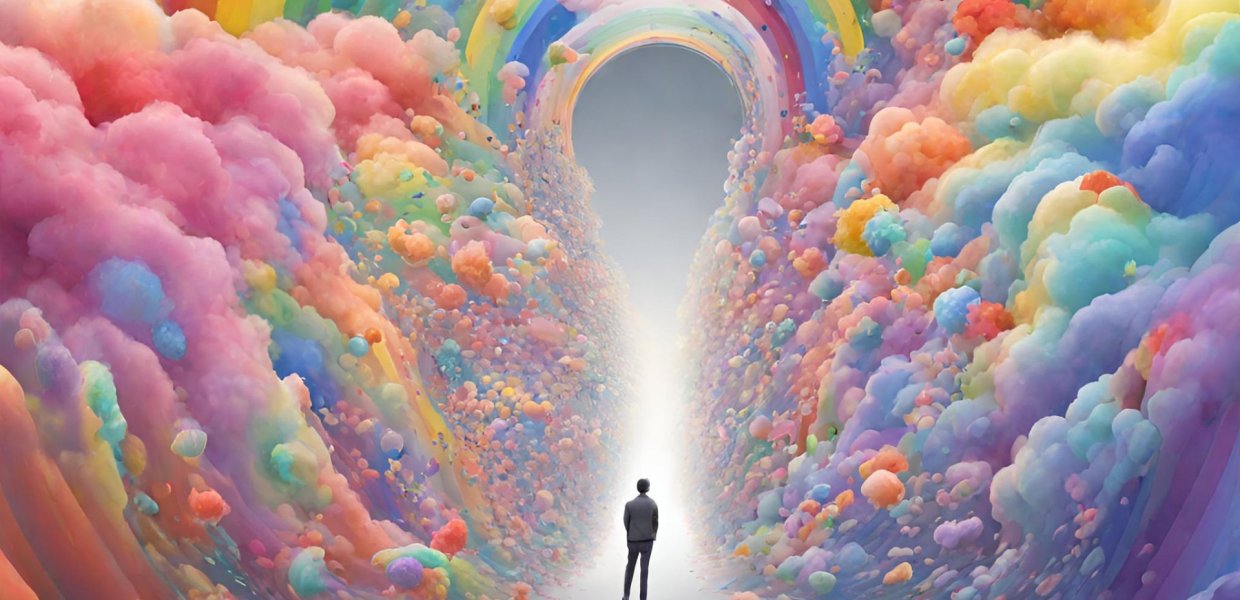At the beginning of this year, we coined the term “AI-nxiety” in our annual trend report, The 2023 Predictionary, to reflect “the unease about the overarching ramifications of AI on human creativity and ingenuity.” By the time you read this, AI will have already become far more tangible, scary and exciting.
The growth rate of AI’s adoption and capability is completely unprecedented. ChatGPT reached 100M monthly active users in just six weeks, all organically. A mere glance at Midjourney’s improvements since its original version looks like decades of innovation in less than a year. It appears increasingly as though Moore’s Law doesn’t apply to AI and predictions of the future are a fool's errand.
Our place along the AI timeline is murky amidst these technological leaps. But it feels like we are somewhere in the awkward teenage years: a period of rapid growth and experimentation, hits and misses.
The truth is no one really knows what will happen next with AI. So then how do we use it in our work? When the future is unclear, the best crystal ball is looking to the past for guidance. Mark Twain’s words remain true as ever: “history doesn’t repeat itself, but it often rhymes.”
So in AI’s experimentation phase, it’s critical to learn from what we already know to manage what we don’t. As communicators, let’s focus on what we know is real: brand storytelling, ideas that real people love and solving real business and consumer problems.
What follows is a playbook of three principles, as told through real life examples — as true for AI any far away form of creative marketing — that can guide us through the adolescence of AI to create work that makes a lasting impact, not a flash in the pan.
1. REAL BRAND STORYTELLING AT THE HEART
The AI creative process should begin with a clear answer to a critical question — what do we want to say about our brand? — to ensure we tell a story about our brand that is going to resonate with our audience and move the needle for our clients.
For example, Heinz put their creative platform “It has to be Heinz” to work, tossing it to the all-knowing mind of generative AI, asking DALLE-2 to ‘draw Ketchup’ with it inevitably returning images that resembled the iconic Heinz bottle. It used AI to paint the picture, but their creative platform was the core of the story and the audience outtake was about the brand, not AI itself.
2. MAKE THINGS FOR REAL PEOPLE
AI is complicated beyond comprehension, but that doesn’t mean our ideas also have to be. For ideas that spread through culture, anyone should be able to understand and want to engage with them.
Virgin Voyages worked with Jennifer Lopez to create a generative AI tool that allows people to create a custom cruise invitation video to their friends and family, as if it were read off a script on the spot by J-Lo herself. While this technology is mind bogglingly sophisticated, the output is simple; “I can make a fun video where J-Lo can invite my buddies on a cruise”.
So again, we should be asking the right questions with candor: Would the average person on the street care about this?
3. SOLVE REAL PROBLEMS
The possibilities that AI opens up are new and exciting, to a distracting extent.
We should be asking ourselves “Does this idea solve a real consumer or business problem, or is it a solution in search of a problem?”
The NFL saw that they faced a huge problem in declining youth participation and therefore interest in football. They recently recruited the help of Disney to create an AI-powered alternative kid-friendly broadcast of Sunday Night Football, recreating an NFL game in real-time as if it were live from Andy’s Bedroom in Toy Story. They used AI to address a huge business problem by making their product relevant to a new audience.
Despite the feeling of unprecedented change, this is yet another disruption to the industry that is another arrow in our creative quiver. Just as marketing has extended from print to radio to television to digital to social media, AI is presenting us once again with the same lesson: people are still people and brands are still brands.
So let’s navigate this uncertain future with our wisdom of experience in culture, people and brands. And let’s always, always check in with our legal teams before doing so.
Josh Rosenberg is Co-founder and CEO of Day One Agency. Josh is a communications strategist and digital media authority with extensive experience shaping marketing communications programs for some of the world’s leading brands, including American Express, Chipotle Mexican Grill, Facebook, Nike, Comcast, Abercrombie & Fitch, Motorola and Ferrara. He is a member of the USC Center for PR board of advisers.
